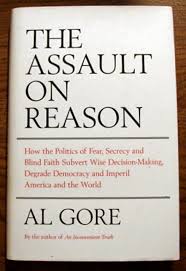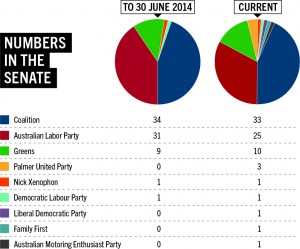As discussed in this space last week, there is a high degree of political tension over the related issues of energy and the environment in Spain. The situation here is , however, nothing compared to what has been happening in Australia where the issues are at the heart of the political struggle .
Environmental politics

After taking power in 2007, Labour’s first act in office was to ratify the Kyoto Protocol and in 2010 Labour Prime Minister Kevin Rudd attempted to pass the first version of Australia’s landmark emissions trading system called the Carbon Pollution Reduction Scheme.
The emissions trading system also produced a split in the leadership of Australia’s other major political party, the Liberals and on December 1st, 2009, Tony Abbott, who was opposed to the system defeated Malcolm Turnbull and Joe Hockey who both favored it in one way or another and became party leader.

Abott then led the fight against the measure in the Australian parliament and that defeat as well as others led Rudd’s own Deputy Prime Minister, Julia Gillard to challenge him for the Labour party leadership and after his withdrawal she became the new Prime Minister.
In Australia’s 2010 general election the vote split evenly between Abbott’s liberals and Labour who were finally able to govern with the support of a green party member and three independents.

Although Gilliard had promised not to implement a carbon tax during the election her Green party supporters pushed her to action and In 2011, Labour brought back the idea of emissions trading but with a fixed rate for the first three years of Australian $ 23 /Ton and this measure was narrowly passed 74 to 72 in the lower house of parliament.
Fixing the rate of an emissions trading system makes it similar in some ways to a carbon tax and that is what Mr. Abbott has called the legislation from the start.
2013 Election and the repeal of the system
In the months prior to the 2013 election, Kevin Rudd successfully challenged Julia Gilliard and became Prime Minister again but this time for only a few months as Australians ended up giving a landslide victory to Mr. Abbott and his coalition. According to the Washington Post’s analysis Rudd’s defeat was largely due to the sense that Labour was internally divided and focused more on itself than the country.
For Mr. Abbott, the election was a “referendum on the carbon tax” and the law’s repeal was narrowly approved by Australia’s Senate this week and made effective July 1st.
His government says that repeal will save the average Australian household about $550 Australian every year because it makes energy more expensive and they will replace it with a direct subsidy for carbon reduction projects on the order of $2.55 Billion Australian which they believe will have a more significant impact with less bureaucracy and at a lower cost.
Divisive Politics
What the Australian story shows is that on critical issues facing us today, such as climate change, the electorate is evenly split and rather than working to find compromise and a middle ground, each side takes advantage of slim majorities to impose sweeping change.
 A few years ago I was asked to introduce former Vice President Al Gore at an event in London and based my remarks on his 2007 book, The Assault on Reason, whose central idea is that the pragmatic center has been lost.
A few years ago I was asked to introduce former Vice President Al Gore at an event in London and based my remarks on his 2007 book, The Assault on Reason, whose central idea is that the pragmatic center has been lost.
This week there is much commentary by Australians and others lamenting the repeal of the emissions trading scheme and while I share their disappointment, my guess is the Australian electorate would like to do something to move toward a more sustainable future but were not ready for the ambitious system put in place. Perhaps a more modest approach by Rudd back in 2010 would have produced lasting legalization that in the end would have done more for Australia and the world.


